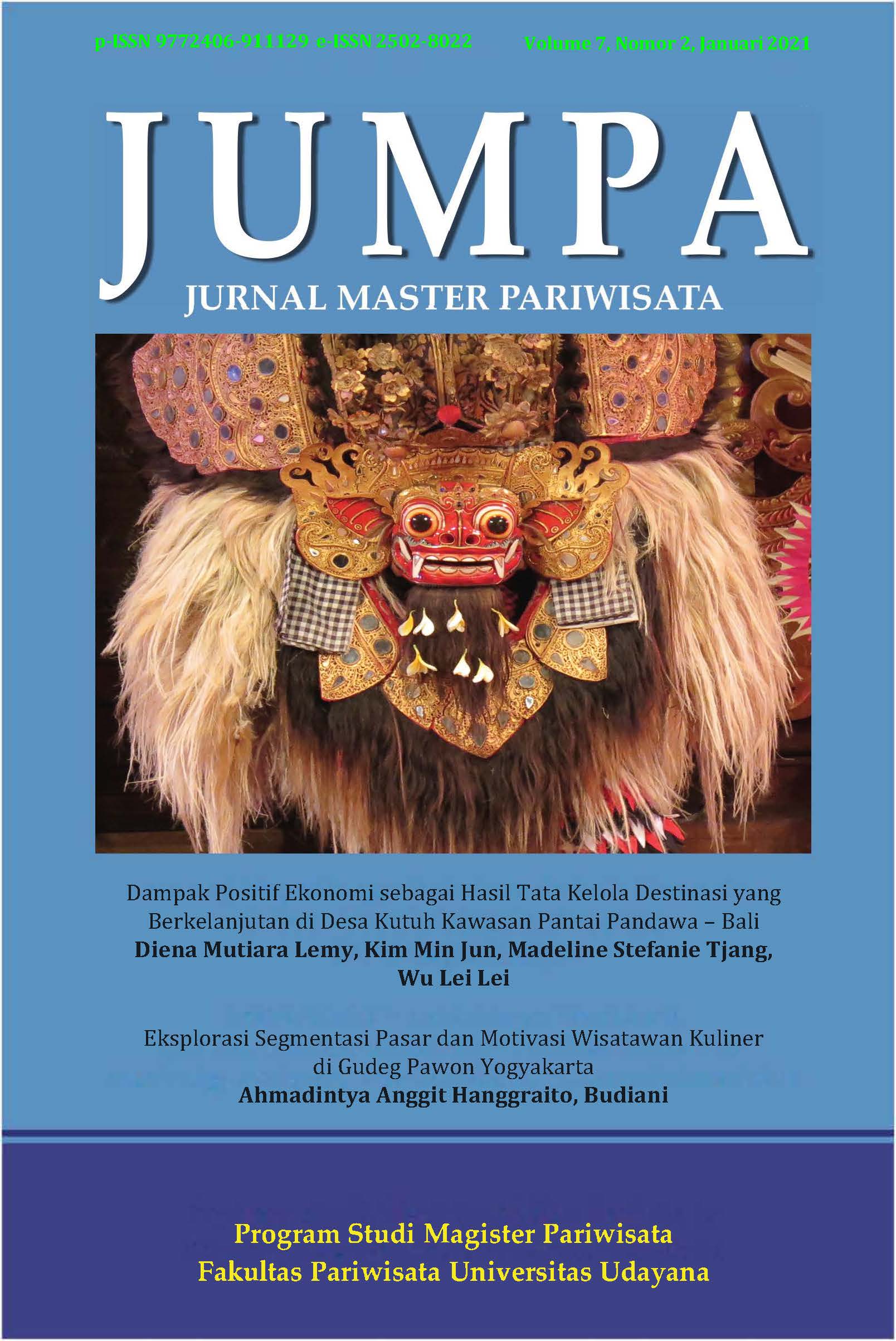Praktik Tanggung Jawab Sosial Hotel The Lovina dalam Pembangunan Pariwisata di Desa Kalibukbuk
Abstract
The practice of corporate social responsibility (TSP) by the hotel industry in Indonesia has been regulated in the Act, but does not provide the expected results to support sustainable tourism development, The Lovina Hotel TSP practice in Kalibukbuk Village can be used as a good example (best practice) for other hotels to have positive implications for sustainable tourism development. This study aims to analyze the practice of The Lovina Hotel TSP program. This research is a qualitative study with a case study approach. The result is that the practice of The Lovina Hotel TSP in Kalibukbuk Village is based on legal compliance, moral encouragement, enhancing hotel image, and social legitimacy. The form of the TSP program is community development and the practical implications of the TSP supporting the development of the 5A tourism component (attraction, amenities, activity, accessibility, ancillary) and has positive implications for stakeholders both hotels, village governments and the community of Kalibukbuk Village.
Keywords: Corporate Responsibility, Hotels, Participation, Social Legitimacy, Sustainable Tourism Development














